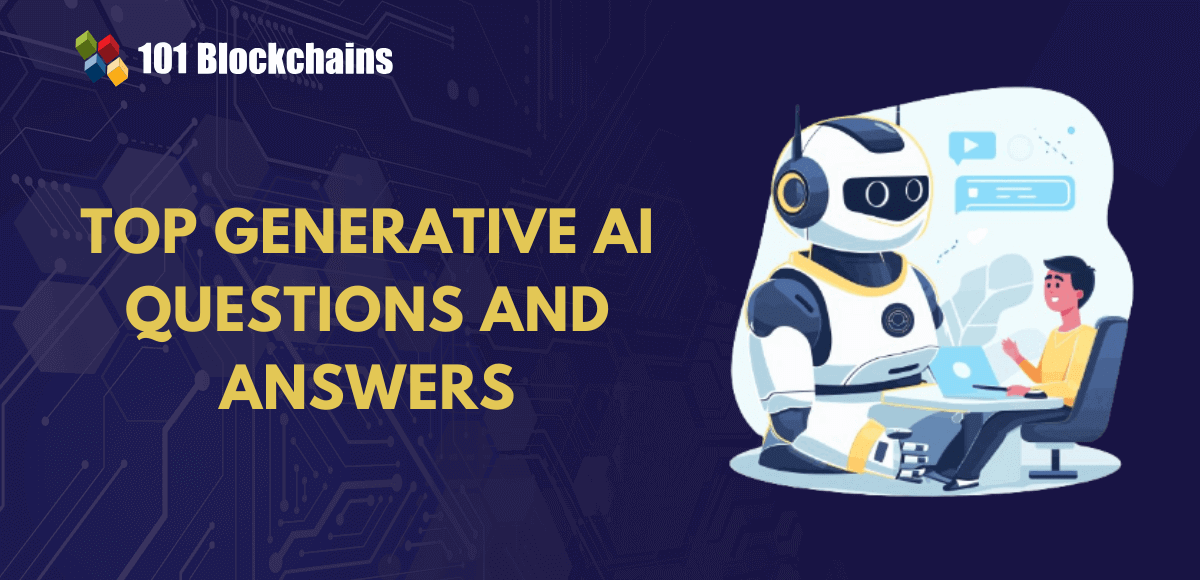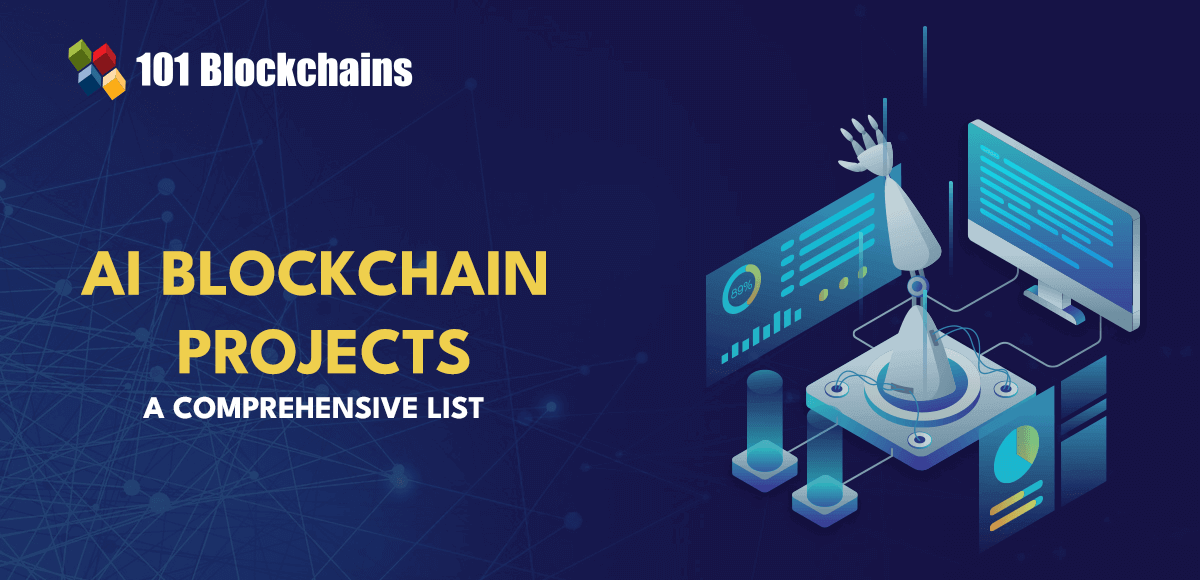Top 20 Generative AI Questions and Answers

With the launch of ChatGPT in November 2022, interest shifted to generative AI. Generative AI has become one of the major topics of interest in the technology space. It has become a driving force for technological change with the help of new tools, innovative technological advancements, and rules. In a limited amount of time, machine learning has demonstrated its potential to positively impact high-resolution weather forecasting and medical imaging analysis.
According to a 2022 McKinsey survey, the recent adoption of artificial intelligence has more than doubled. Therefore, the best generative AI questions and answers have emerged as a top priority for candidates seeking generative AI jobs. Learning important interview questions and answers about Generative AI Exa can help you increase your confidence in your career growth as an AI professional. Learn more about the most common generative AI questions and answers you’ll encounter in interviews.

Why should I learn about Generative AI Questions and Answers?
Generative AI has captured the attention of business leaders, advocates, the general public, critics, and even politicians. This has not only created new opportunities, but also raised more questions while providing a foundation for further technological innovation. Organizations across a variety of industries have been working to adopt generative AI tools into their business models.
In fact, a McKinsey study found that generative AI applications could contribute approximately $4.4 trillion annually to the global economy. Companies want to invest resources and time to learn more about the complexities of generative AI. They want to leverage the power of generative AI while reducing potential risks.
Generative AI presents some promising opportunities for change. However, it is also important to note that generative AI poses enormous challenges. As companies look for new ways to navigate the uncertain, uncharted territory of generative AI, they need experts. The best generative AI questions and answers can help employers test how candidates understand generative AI. Generative AI interview questions can also help you find expertise in integrating generative AI into business workflows.
Understand the true potential of generative AI and become an expert through the generative AI technology path.
Key Generating AI Questions and Answers
Generative AI is a powerful tool that encourages innovation and artificial creativity for a variety of tasks. In fact, by 2025, approximately 10% of data generated globally will be the result of generative AI. The most popular generative AI questions and answers can be a valuable preparation resource for your generative AI job interview. Below is a collection of important questions that can help you explore new possibilities or expand your knowledge in generative AI.
1. What do we know about the working mechanisms of Generative AI?
Generative AI is an important subdomain of artificial intelligence that emphasizes augmenting machines with the ability to generate content just like humans. It works by using deep learning techniques such as neural network architecture to achieve its goals. For example, recurrent neural networks or transformer-based architectures are important components for generative AI operations.
Essential interview questions and answers about working with generative AI focus on a brief overview of the steps in the mechanism of work. The basic steps that define the operation of generative AI include data collection, training, data generation, and fine-tuning.
2. Do you know about use cases for Generative AI?
Generative AI is the best choice for a variety of modern applications such as content creation, data augmentation, and image and video creation. It is also useful for natural language processing tasks such as text generation, chatbots, and language translation. You can also use generative AI to generate synthetic data that can augment existing data sets for machine learning models.
3. What do you know about the top companies in generative AI?
Generative AI models have played a significant role in revolutionizing the AI space with their impressive capabilities for content creation. The Best Generative AI Questions and Answers brings attention to examples like GPT-4 and BERT, the top names in generative AI. Other popular additions to the generative AI domain include DALL-E, StyleGAN2, and Vector Quantized Variational Autoencoder 2.
Want to develop your ChatGPT skills to become familiar with AI language models? Enroll in ChatGPT Basics Course Now
4. How will Generative Adversarial Networks revolutionize AI?
Generative Adversarial Networks (GANs) are one of the most innovative concepts in the field of generative AI. The network works with two main components: generator and discriminator. Both components work together when creating and evaluating content. The generator creates new data, and the discriminator is responsible for determining whether the new data is real or synthetic.
5. Are there any limitations to Generative AI?
The best generative AI questions and answers also draw attention to the limitations of generative AI. Generative AI may have recorded some impressive improvements in a short period of time. However, it is also important to note that generative AI presents a wide range of limitations and risks to users.
For example, ethical concerns are one of the biggest problems with generative AI, along with data dependency, lack of control, and excessive resource consumption. Intellectual property issues and security risks are also common in generating AI applications.
6. What are the important ethical concerns in generative AI?
Generative AI can generate content independently without human intervention. However, this also raises some important ethical considerations, and effective resolution of ethical concerns can ensure responsible use of generative AI. Key ethical issues related to generative AI include bias and fairness, identity theft, privacy, and legal and copyright issues. Other ethical issues related to generative AI include misinformation, liability, and legal and copyright issues.
Do you want to understand the importance of ethics in AI, ethical frameworks, principles and challenges? Enroll in our Artificial Intelligence (AI) Ethics course now
7. What are the notable challenges in training generative AI models?
The most popular generative AI questions and answers bring attention to the challenges of training generative AI models. You are likely to face challenges such as data quality, ethical considerations, and computing resources required for the training process. You also need to know how evaluation metrics and model collapse risk can pose challenges to training generative AI models.
8. Is generative AI useful in healthcare?
Interview questions about generative AI also test your knowledge of use cases in various industries. Generative AI can transform healthcare through a variety of applications, including improving image quality for medical imaging and rapid drug discovery. Generative AI can also provide predictive modeling to predict outbreaks and design personalized treatment plans based on patient data.
9. What factors are important when evaluating the results of a generative AI model?
You’ll also find essential interview questions and answers for generative AI that require knowledge of important factors to evaluate generative AI output. Important factors that can help evaluate the output quality of a generative AI model include human review, diversity assessment, user feedback, and plagiarism detection. You can also evaluate generative AI output using domain-specific metrics.
10. What is the role of transfer learning in generative AI?
Transfer learning helps transfer knowledge from one field to another through generative AI by reusing pre-trained models. It works by leveraging existing training datasets to reduce training time and improve generalization capabilities.
11. What is the recommended method for evaluating the output fidelity of a generative AI model?
You can find the best generative AI questions and answers by paying special attention to how you evaluate the fidelity of the output. The most notable techniques for measuring the fidelity of generative AI output include precision-recall curves, structural similarity index measure (SSIM), and Frechet Inception Distance (FID).
12. Is interpretability important for generative AI?
That’s right. Interpretability is a critical requirement for understanding the operating mechanisms of generative AI systems. This helps researchers and developers understand potential problems and achieve responsible use of generative AI systems.
13. How does the attention mechanism of Llama 2 differ from GPT?
Llama2 is a topic of interest for the best generative AI questions and answers to test your knowledge of the LLM industry. Llama 2 is different in that it can utilize grouped query attention rather than traditional multi-head attention. This department helps improve processing efficiency.

14. What is search augmentation creation?
Search Augmented Generation (RAG) works through the integration of search-based and generative models to increase the efficiency of content creation. RAG leverages external knowledge sources to improve output and achieve better accuracy.
15. What are the common metrics used to measure generative AI results?
Common metrics for generative AI include F1 score, BLEU score, METEOR score, ROUGE score, along with human evaluation benchmarks.
16. Is fine-tuning essential for the growth of generative AI?
Fine-tuning is an essential requirement for the growth of generative AI as it focuses on preparing pre-trained models to perform specific domains or tasks. This includes LLM training on task-specific data.
17. What is the importance of scalable computing infrastructure in generative AI?
Scalable computing infrastructure is one of the common elements of the most popular generative AI questions and answers focused on the future of generative AI. Scalable computing infrastructure is an essential requirement for managing large data sets and increasing computational intensity of workloads.
18. How do adversarial attacks affect generative AI systems?
Adversarial attacks work by exploiting vulnerabilities in generative AI systems. These attacks include using techniques such as perturbation to produce incorrect predictions or affect the integrity of the generative AI system.
19. Will generative AI increase misinformation?
Yes, LLMs are more likely to find application in generating misinformation or fake news, and this appears to be true. This can lead to the spread of fake news and lead to negative consequences such as influencing public opinion or elections.
20. What are the recommended techniques to handle mode collapse in GANs?
Various techniques, such as mini-batch discrimination and integration of various loss functions such as WGAN-GP, can be utilized to handle mode collapse in GANs. Additionally, techniques such as spectral normalization help combat mode collapse.
Understand the real potential of AI and best practices for using AI tools with our AI For Business course.
final words
Reviewing essential interview questions and answers for generative AI jobs proves that there is a lot to learn about generative AI jobs. Become familiar with the technologies that power generative AI, examples of generative AI applications, and their benefits. You also need to know the limitations and best practices for addressing these issues. Learn more about LLM and Generative AI today with our comprehensive learning resources.




